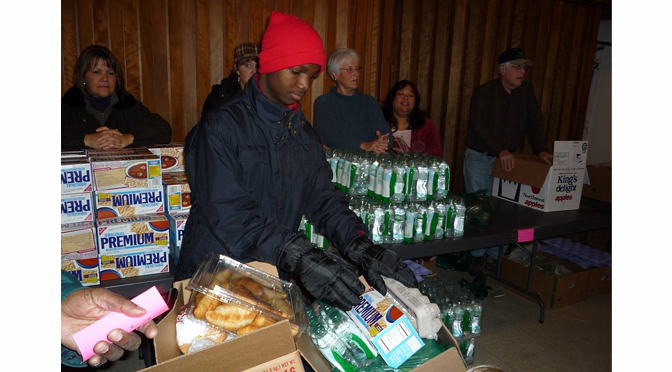|
|
By Capital Blue Cross – THINK (Trusted Health Information, News, and Knowledge) is a community publication of Capital Blue Cross. Our mission is to provide education, resources, and news on the latest health and insurance issues.
About 1 in 10 Americans are food insecure. Programs such as food stamps, while helpful, aren’t always enough to fill the gap between available funds and needed food. We can all help ease the hunger by donating to food banks and food drives, pushing for a reduction in food waste, and strongly urging others to support the cause.
While many of us fret over how to fund our wants, too many struggle to merely meet their needs.
For more than 1 in 10 Pennsylvanians, that includes worrying over how to feed themselves or their families.
More than 1.35 million in the state – 10.5% of the population – are food insecure, according to Feeding America. Pennsylvania’s ratio parallels the problem nationwide; 35.2 million Americans, or 10.7% of us, are either hungry or lack a reliable food source.
“When we suffer from food insecurity, that insecurity spreads to virtually all areas of our lives.” said Dr. Jennifer Chambers, chief medical officer at Capital Blue Cross. “It harms our physical health, because when we’re food insecure we tend to buy low-cost/low nutritional-value foods that can lead over time to a variety of physical problems.
“It harms our mental health, because it often causes high levels of stress and anxiety, and possibly depression. It can even harm our financial health, because we need regular, healthy meals to perform at our best levels and remain productive.”
“When we suffer from food insecurity, that insecurity spreads to virtually all areas of our lives.”
— Dr. Jennifer Chambers, chief medical officer at Capital Blue Cross
Economic impact
Costs connected to hunger and food insecurity in the United States total $130 billion a year, or $542 per U.S. citizen, reports the Center for American Progress. Of that, $19.2 billion takes the form of lower lifetime earnings that stem from childhood hunger, a crisis in itself that costs the U.S. $28 billion a year.
And according to the Children’s HealthWatch Report funded by Feeding America, workers who suffered hunger as children create a less-competitive, less-educated workforce. Child hunger also increases employee absenteeism and workforce turnover.
“It’s not enough to just be concerned about more than a million Pennsylvanians being food insecure. We have to step forward to provide monetary and volunteer support.”
— Susan Hubley, vice president of Corporate Social Responsibility at Capital Blue Cross
How to help
In both the state and nation, roughly half of food-insecure people struggle enough financially to qualify for the Supplemental Nutrition Assistance Program (SNAP). But food stamps, while helpful, cannot wholly fix the widespread problem.
The public can help by supporting various agencies and initiatives, such as food banks or food drives, that fight food insecurity, and by urging their family and friends to do the same.
Capital Blue Cross contributes generously to the cause. In 2021, Capital put nearly $190,000 toward 14 area programs, agencies, or projects aimed at fighting food insecurity. In Central Pennsylvania, this included a combined $65,000 to the Central Pennsylvania Food Bank, Salvation Army Harrisburg, and Downtown Daily Bread.
“It’s not enough to just be concerned about more than a million Pennsylvanians being food insecure,” said Susan Hubley, vice president of Corporate Social Responsibility at Capital Blue Cross. “As a corporate leader in the community, we have to step forward to provide monetary and volunteer support to organizations that are working to solve hunger in our region.”
You can find more useful articles at https://thinkcapitalbluecross.com/
Information provided to TVL by:
JERRY REIMENSCHNEIDER
Senior Public Relations Specialist | Brand & Market Strategy
https://www.capbluecross.com/







